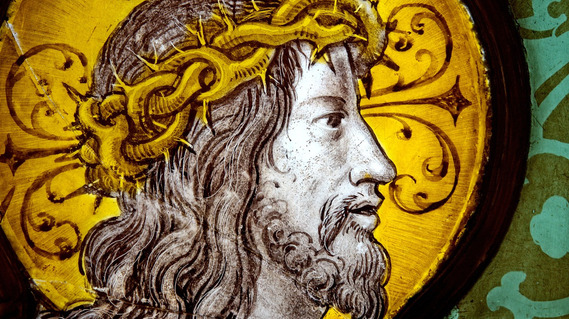Impossible things
Subsequently I turned my thoughts to something closely related but much more practical. It occurred to me to ask: What are the Top Ten impossible things that Christianity asks me to believe? After serious consideration I never could arrive at a meaningful ordering of the ten. Therefore, the position on the list reflects nothing more than the order in which I have chosen to discuss them. Finally, and this is just a reminder, this is my list. Yours may be different.
Reflection - Top Ten
http://www.usccb.org/bible/readings/033116.cfm
This morning, two passages come together, one from the Acts of he Apostles and one from the Gospel of Luke. And they come together precisely because each focuses attention on the same thing: the works of God among His people and the corresponding astonishment of those same people.
In the reading from Acts we witness the reaction to the cure of the crippled man, an event in which Peter and John were instrumental.
As the crippled man who had been cured clung to Peter and John,
all the people hurried in amazement toward them”
When Peter saw this, he addressed the people,
“You children of Israel, why are you amazed at this?"
In the reading from Luke we are presented with the reaction of the Apostles to an appearance of Jesus after the Resurrection.
While they were still speaking about this,
he stood in their midst and said to them, “Peace be with you.”
But they were startled and terrified
and thought that they were seeing a ghost.
Then he said to them, “Why are you troubled?
And why do questions arise in your hearts?
In reading about these two incidents my deliberations initially turned to the question: How would I have reacted in each of these two situations? It only took a few moments of consideration to understand that first, I really had no idea; and second, that any idea I might have regarding my reaction would be seriously biased toward myself as being the ideal Christian. It didn't take long to abandon that particular line of speculation.
Subsequently I turned my thoughts to something closely related but much more practical. It occurred to me to ask: What are the Top Ten impossible things that Christianity asks me to believe? After serious consideration I never could arrive at a meaningful ordering of the ten. Therefore, the position on the list reflects nothing more than the order in which I have chosen to discuss them. Finally, and this is just a reminder, this is my list. Yours may be different.
So, following the Top Ten protocol, we'll start at the bottom of the list and work our way up even though the position is meaningless.
(1). Centuries ago, when the Roman empire was entering its grandest period, a child was born in Bethlehem to a woman named Mary. Eventually he was thought to be the Jewish Messiah, promised throughout the preceding centuries as the anointed one of God who would come and save God's Chosen People. Although it wasn't understood at the time of his birth, people would come to believe that he was not only the Messiah, the Anointed One, but that he was also the actual Son of the Living God. The belief that the historical person, Jesus of Nazareth, was actually the incarnation of God makes my list.
(2). Two thousand years ago there was a person named Jesus, son of Joseph the carpenter. During his lifetime most of his contemporaries thought he was just a man. Then he died, crucified on a cross. Three days later he is said to have risen from the dead and, during the next forty days was actually seen by hundreds. Paul made it clear: "If Jesus is not risen then our [Christian] faith is in vain." The Resurrection of Jesus joins the Top Ten list. As you will see, there are many more 'impossible' things to believe.
(3). It's possible that this 'impossible thing' doesn't deserve its own place on the list. But, for me, it does. It's one thing to believe that God could choose to take on human existence so as to teach us, among other things, how to live; it's quite a different matter to consent to the proposition that this God, now in human form, would accept the suffering and death attributed to Jesus in the Gospels. So this becomes the third 'impossible' truth my faith asks me to believe.
(4). There is a history behind the Passover meal that is celebrated annually by the Jewish people. That history began around 1250 BC when the Passover was first celebrated in the same manner that it is celebrated today. Because of the events that surrounded that initial meal, the feast signified escape from slavery, escape from death, the establishment of a special relationship between God and the Jewish people, and even more. But the celebratory meal itself held a central place. It began with the slaughter of a lamb, the sprinkling of its blood on the entry way to people's homes and the consumption of the roasted animal with family and friends. Christianity asks me to believe that Jesus transformed that very celebration; That He himself was the lamb who was slaughtered; That He gave his body instead of that of the lamb as a life-giving food for all time; that he gave us his body in the form of bread; that he gave us his actual blood to drink in the form of wine. All of this so that his followers could feed on him until the end of time. This I believe.
(5). Imagining a creator is not particularly difficult; both philosophers and ordinary men have arrived at the conclusion that what exists came to be through the activity of some supernatural, spiritual being. Yet, the notion that such a superior being would be interested in the minutia of creation really stretches the limits of believability. The gods of other faiths keep their distance and, for some, it is blasphemous to even imagine the involvement of their god in human affairs. Christianity demands belief in a radically different sort of God: a God who does more than watch his creation as it unfolds in time; a God who involves himself in the affairs of human existence; a God who will order the events of history to accomplish his purpose.
(6). We have a compilation of books that we call the Bible. The component literary volumes run the full gamut of literary styles. Christian teaching says that in the words of these texts God has spoken to mankind, inspiring human authors in such way that both the Spirit of God and the human person doing the writing can both be called true authors of the texts. In these written words we claim to find the authentic record of God's interaction with humanity as well as His instructions on how to live in union with him.
(7). Accepting the Bible as the very word of God has already been addressed. But that acceptance, of itself, is specifically an acceptance of a document proffered to the whole of the human population. I, as an individual can well read it or hear it as I would the US Constitution or the the inspirational writings of C.S. Lewis: There is something I can learn from this that could prove useful in my life. The Personal Word of God to me in the Scripture is different. It presumes that there is a divine presence and a divine life in the very text of the Sacred Scripture. It assumes that the Word of Scripture is more than letters and spaces, sentences and paragraphs. Rather, it is the embodiment of the living voice of God. Given this understanding, and reading the text in a prayerful and meditative way, I can expect that God will open my mind and heart to a new level of understanding which has little to do with the manner in which I order my life and everything to do with comprehending how I make Him the center of my life. This is one of the Top Ten impossible things I believe.
(8). There must be a gazillion different created things. There must be a gazillion gazillion created individuals. There seem to be so many in fact that if each and every one got a lottery ticket every time a lottery was held I doubt that any given lottery would not have a winner. On the contrary, it seems more likely that we would run out of lottery numbers. Now, in this lottery scenario my limited imagination projects numbers beyond my personal comprehension. Still, I would surmise that there is an element of truth contained in the picture. What I need to do and what I am trying to do here is to give you an image of the one in the midst of the seemingly infinite multitude. Why? Because Christianity says, impossible as it is, that I should believe that, out of this immense throng of created things, God wants me to know Him. That's not to say 'me' to the exclusion of others. And it's clear that God has lots of choices and that if he wanted he could create even more choices. Yet, He wants a relationship with me.
(9). Christianity is a very personal religion (while simultaneously being a very communal religion). Although I sometimes allow my ego to take over and consequently speak or act in a puffed up manner, the fact is, when I'm willing to face the truth, I know my place. It doesn't make much difference as to which arena I turn my attention; almost all tell me the same thing. In the political picture I am small. In the economic picture I am small. On the city's social page I am small. In the academic world I am small. In the solar system, the Galaxy, the universe, the cosmos I am small. I could easily go on, but you get the picture. In fact, there is only one area of my life where I can say that I am not small: that is in the eyes, the minds, the hearts of those who choose to have a relationship with me. Christianity expects me to believe that I am not small in the eyes of God, that he chooses to have a relationship with me. How impossible is that!
(10). Theological discussions about grace may be interesting, but this subject is one which demands a more personal involvement than the abstract thoughts of academicians. Now I may be unique in my thinking, but I believe grace has often been presented to me (or at least understood by me) to be something you accumulate, like money. The more you have, the better off you are. The technical or academic descriptions don't help much. That is the ones that say things like: Grace is the life of God within you. Subdivisions of grace only confuse the matter further: actual grace, sanctifying grace, sacramental grace, preventing grace, etc. What is at the core of Christian teaching is spoken of by Paul as the new 'creation' which comes from being baptized with 'the Holy Spirit and with fire.' The language by which Scripture expresses this truth leaves little wiggle room, even though that truth is somewhat obscured by the limitations of human experience, thought and language. The heart of the matter as I understand it is this: Jesus has sent his Spirit to dwell in us. This is the Spirit which is the fount and source of all life and all love. It is the Spirit whose very existence is the essence of God. In receiving this Spirit I am received into the innermost life of the Trinity by sharing in the Sonship of the Father's only Son. Isn't this just the most impossible of all? How much simpler if grace were just a bank account!

